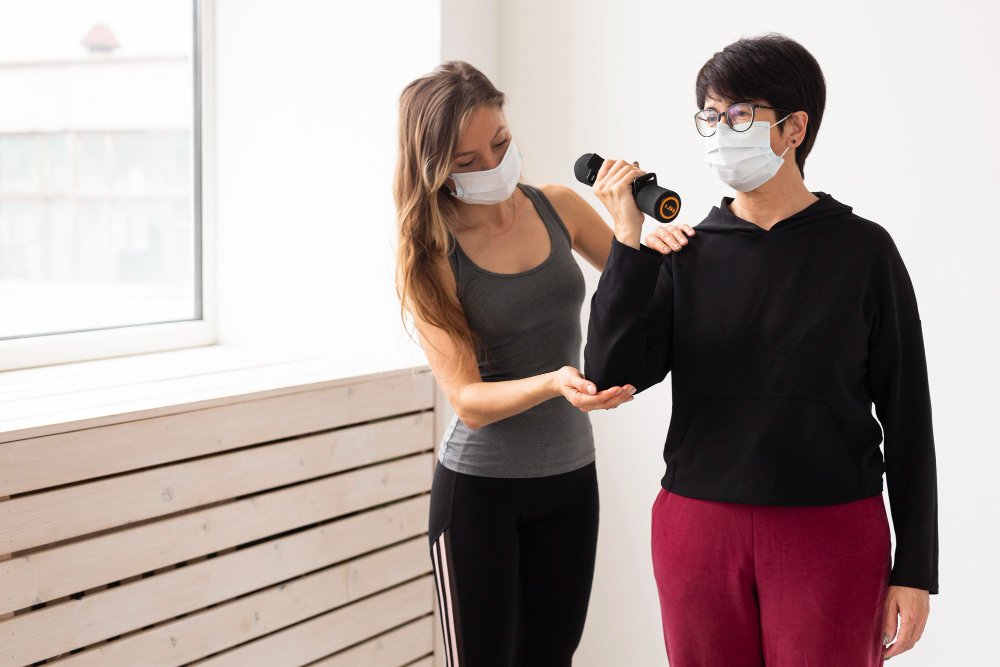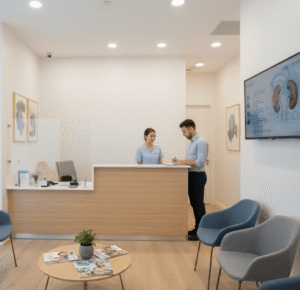A Healthy Life the Korean Way
South Korea is well-known for its advanced healthcare system and long life expectancy — one of the highest in the world. But beyond hospitals and medicine, Koreans credit their good health to daily habits and lifestyle traditions passed down through generations.
These lifestyle practices are built on the philosophy of balance, moderation, and prevention. From food and movement to mental harmony, Korean culture promotes small, consistent actions that strengthen the body and protect against common diseases like heart disease, diabetes, obesity, and hypertension.
Here’s how adopting key Korean lifestyle habits can help you prevent illness and live a healthier, more balanced life.
➤ Eating for Balance, Not Excess
One of the strongest pillars of Korean health is food as medicine. The traditional Korean diet, known as Hansik, is based on fresh vegetables, fermented foods, whole grains, and lean proteins.
➤ Meals are naturally low in fat and sugar but high in fiber, vitamins, and antioxidants.
➤ Dishes are served in small portions, encouraging moderation and variety.
➤ Fermented foods like kimchi, doenjang (soybean paste), and gochujang (chili paste) support gut health, immunity, and metabolism.
Health benefit: This diet helps prevent chronic diseases such as obesity, heart disease, and type 2 diabetes by promoting a healthy gut and balanced blood sugar levels.
Lifestyle tip: Focus on colorful meals — plenty of vegetables, fermented sides, and moderate rice portions. Eat slowly and stop when you’re satisfied, not full.
➤ Staying Active in Daily Life
Koreans don’t rely solely on gyms to stay fit — movement is built into daily routines. Cities and neighborhoods are designed for walking, hiking, and public transportation, which encourages regular physical activity.
➤ Walking, climbing stairs, and light hiking are common daily habits.
➤ Many older Koreans practice taekkyeon (traditional movement) or morning stretching.
➤ Public parks and mountain trails are full of people doing group exercises and community aerobics.
Health benefit: Consistent moderate exercise improves cardiovascular health, strengthens muscles, and reduces stress — lowering the risk of diseases like hypertension and diabetes.
Lifestyle tip: Aim for at least 30 minutes of walking a day, or try hiking once a week to enjoy nature while improving endurance and balance.
➤ Embracing Preventive Health Checkups
Korea’s healthcare system places great importance on early detection and prevention. The government provides regular health screenings for citizens, allowing doctors to catch potential issues early.
➤ Screenings include checks for blood pressure, cholesterol, liver function, diabetes, and cancer.
➤ Many workplaces also offer annual medical exams as part of employee wellness programs.
Health benefit: Early detection allows for timely treatment and lifestyle adjustments before conditions worsen.
Lifestyle tip: Don’t wait for symptoms. Schedule regular checkups and monitor vital signs such as blood sugar, cholesterol, and blood pressure. Prevention is always better than cure.
➤ Managing Stress and Emotional Health
Korean culture values harmony between body, mind, and environment. Mental wellbeing is viewed as essential to physical health.
➤ Practices like meditation, breathing exercises, and quiet reflection are used to relieve daily tension.
➤ Nature walks (sanlimyok) — walking through forests — help reduce anxiety and promote relaxation.
➤ Spending time with family and participating in community activities builds emotional resilience.
Health benefit: Managing stress effectively reduces the risk of heart disease, high blood pressure, and weakened immunity.
Lifestyle tip: Set aside at least 10–15 minutes each day to unplug, breathe deeply, and focus on gratitude or mindfulness.
➤ Prioritizing Sleep and Rest
Koreans recognize that rest is just as important as activity. Adequate sleep restores the body, supports immunity, and maintains mental clarity.
➤ Korean doctors recommend 7–8 hours of quality sleep each night.
➤ Many people follow calming routines before bed — warm baths, herbal tea, or quiet reading.
➤ Skincare and relaxation are also part of nighttime rituals that signal rest.
Health benefit: Consistent sleep supports hormone balance, metabolism, and mental focus while preventing fatigue-related diseases.
Lifestyle tip: Go to bed and wake up at the same time daily. Keep your sleep space dark, cool, and peaceful — a habit rooted in Korean sleep hygiene.
➤ Eating Seasonally and Locally
Korean diets change with the seasons, ensuring the body receives the right nutrients for each time of year.
➤ Spring: Detoxifying greens like spinach, mugwort, and bean sprouts.
➤ Summer: Cooling foods like cucumber, watermelon, and cold soups.
➤ Autumn: Immune-boosting fruits like pears and persimmons.
➤ Winter: Warming stews, garlic, and ginseng for energy.
Health benefit: Seasonal eating supports metabolism, strengthens immunity, and keeps digestion healthy — helping the body adapt to environmental changes naturally.
Lifestyle tip: Choose fresh, local produce whenever possible. Eating in tune with the season improves digestion and reduces the risk of nutrient imbalance.
➤ Maintaining a Healthy Social Life
Connection and community are essential in Korean culture. Eating together, volunteering, and supporting family are seen as part of good health.
➤ Regular family meals strengthen emotional bonds.
➤ Group fitness or hobbies like hiking and dance classes promote motivation.
➤ Older adults often join community centers for exercise and social activities.
Health benefit: Strong social relationships reduce loneliness and lower the risk of depression, cognitive decline, and even heart disease.
Lifestyle tip: Make time to eat or walk with friends and family regularly. Social connection is a powerful form of preventive medicine.
➤ Using Herbal Remedies and Functional Foods
Traditional Korean medicine (Hanbang) emphasizes prevention through natural remedies and functional foods.
➤ Ginseng improves immunity, energy, and blood circulation.
➤ Jujube (daechu) supports relaxation and boosts red blood cells.
➤ Ginger, garlic, and green tea help detoxify and strengthen the immune system.
➤ Fermented soybean pastes provide probiotics and essential amino acids.
Health benefit: These ingredients protect against inflammation and infection while promoting overall vitality.
Lifestyle tip: Incorporate one herbal tea or supplement — such as ginseng or jujube tea — into your daily routine to maintain inner balance and immune strength.
➤ Practicing Moderation and Mindful Eating
Korean eating culture is built on balance and portion control. Meals are diverse but moderate, designed to satisfy without excess.
➤ Rice, vegetables, and soup form the base, while meat and sweets are eaten sparingly.
➤ Sharing food in small dishes promotes mindful eating and social connection.
➤ Overeating is discouraged, and meals are enjoyed slowly.
Health benefit: Mindful, moderate eating helps maintain a healthy weight and digestive health, reducing the risk of obesity and related diseases.
Lifestyle tip: Eat until you’re 80% full — a common Korean practice that supports longevity and balance.
➤ Keeping Clean and Organized Spaces
Cleanliness and hygiene are deeply valued in Korean culture — not just for appearance, but for health.
➤ Homes are regularly cleaned and aired out to prevent mold and bacteria.
➤ Shoes are always removed before entering living spaces to avoid germs.
➤ Korean spas (jjimjilbangs) promote hygiene, relaxation, and detox through steam and heat therapy.
Health benefit: Good hygiene reduces the spread of infections and supports respiratory health, especially during seasonal changes.
Lifestyle tip: Maintain a clean home environment and take time for weekly detox — whether through a sauna, steam bath, or herbal soak.
Final Thoughts: Prevention Through Daily Practice
Korean lifestyle practices show that health isn’t built overnight — it’s created through small, consistent habits. By focusing on prevention, balance, and community, Koreans have cultivated a way of life that keeps disease at bay and promotes long-term vitality.
You don’t have to live in Korea to benefit from these traditions. Start by:
- Eating balanced, fermented meals
- Walking daily and sleeping regularly
- Managing stress mindfully
- Staying socially connected
Prevention is the truest form of healing. Live with harmony, eat with awareness, and care for both your body and mind — the Korean way to lifelong wellness.













